When I was tapped to join the Obama administration eight years ago, there was no nominee for Secretary of Commerce.
After several false starts the president announced former Governor Gary Locke of Washington who was confirmed and sworn in one month later. That was not the end of the musical chairs, though. By the time I left the Commerce Department in late 2013, six different people had occupied the secretary’s office, including myself. Despite these changes at the top, however, the Commerce Department has punched above its weight throughout the Obama administration. Consider the big issues today—trade; China; the future of work, manufacturing, and innovation; data and the digital society; climate change and oceans—Commerce is in the middle of all of them.
If Wilbur Ross is confirmed as Commerce Secretary, he is likely to find himself, as we were, in the middle of many of the big issues of the day. Like Secretary Penny Pritzker, he brings to the agency the important asset of a long and strong relationship with the man who will be President. His relationship with the President-elect evidently goes back to the bankruptcy of the Trump casinos and, with his campaign white paper rationalizing import tariffs co-written with trade adviser Peter Navarro, he established himself as an adviser on trade and economic issues. He is touted to be the administration’s leader on trade issues.
Ross evidently has deep experience with China, Korea, and Japan and is a sophisticated global player with experience in operating businesses and manufacturing as well as investing. His nomination nevertheless faces some important questions:
He, Navarro, and designated Trade Representative Robert Lighthizer have been vocal about being more aggressive in trade remedies with China. China’s passive-aggressive approach to compliance with WTO obligations and its increasingly explicit barriers to trade could use a more pointed and transactional approach. But trade remedies are subject to a set of laws and procedures that constrain the government from slapping on tariffs at will. How will the administration apply the available laws and procedures to make sure its measures stand up? What will be the administration’s approach to regulatory barriers?
The question of financial disclosures and his ethics agreement approved by the Office of Government Ethics looms especially large for Ross and his role in trade. Ross has had extensive investment holdings, and served on the board of a steel company. The trade cases before the Enforcement and Compliance Bureau of Commerce’s International Trade Administration are what are referred to as “party matters” under ethics law, and a large part of this docket involves the steel industry. Ross will be barred from any involvement in party matters in which he has a current interest or has previously been involved, and from issues involving sectors in which he holds an interest worth more than $50,000 or affecting companies in which he had a role in the past two years. How much will such restrictions required by law limit Ross’s ability to perform his duties as Secretary of Commerce and the role envisioned for him in a Trump administration?
Commerce has an essential role to play on issues other than trade. It is the federal government’s leader on digital policy issues; Secretary Pritzker has doubled down on the digital economy as a strategic priority and reinforced Commerce as a leading point of contact for the tech industry. With the economics statistics, the Census, and the weather and climate data of the National Oceanographic and Atmospheric Administration, Commerce accounts for 40 percent of the data made public by the federal government. Ross’s business history does not obviously reflect any background in these areas. How does Ross see this role and how does it fit into the administration’s focus on manufacturing? How does the new administration plan to approach restrictions on the flow of data across borders?
The U.S.-EU Privacy Shield is a hard-won agreement with the European Union last year to enable transatlantic data flows, with Commerce as the lead negotiator on the U.S. side. These data flows support 50 percent of the world’s GDP. A keystone of the Privacy Shield framework is Presidential Policy Directive 28 on signals intelligence, which extends privacy protections to foreign citizens outside the US. As Congressman James Sensenbrenner has pointed out to the President-elect, undoing PPD-28 could undo the Privacy Shield. Will Ross help to keep this framework in place and back it with the resources Commerce assured the European Commission put into administering the framework?
NOAA’s weather and climate data provide an objective measures of temperatures in the oceans and atmosphere. Their reports will reflect the course of climate change. Will Ross act to restrict scientific inquiry?
Wilbur Ross is a heavyweight in the business world, but business executives have a mixed record of success as government leaders. Whether the Commerce Department will remain a heavyweight if Wilbur Ross is its leader will depend in significant part on answers to these questions.
Editor’s note: Wilbur Ross was a member of the Brookings Institution Board of Trustees.
The Brookings Institution is committed to quality, independence, and impact.
We are supported by a diverse array of funders. In line with our values and policies, each Brookings publication represents the sole views of its author(s).

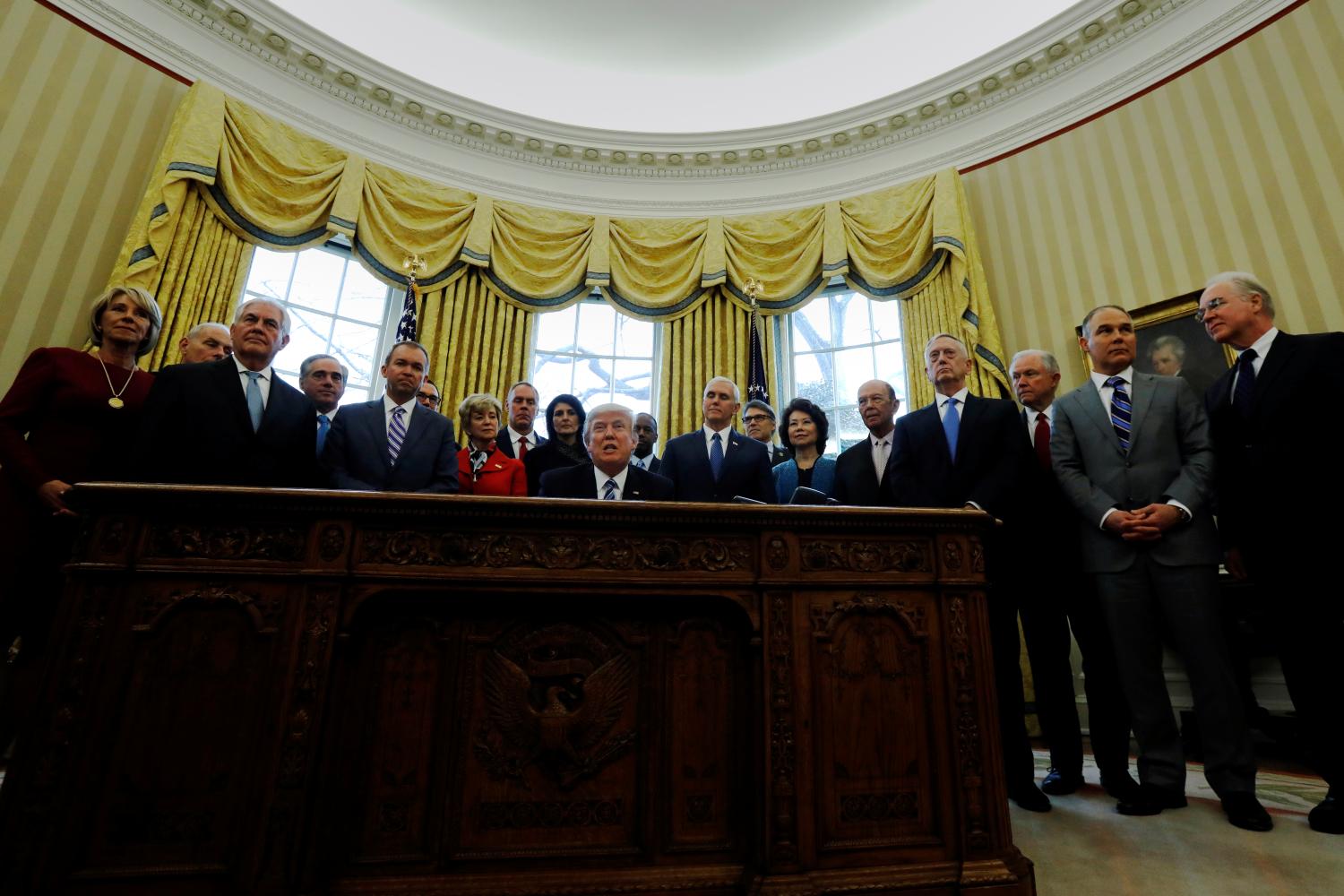
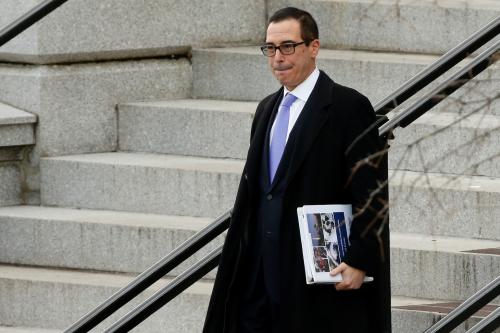

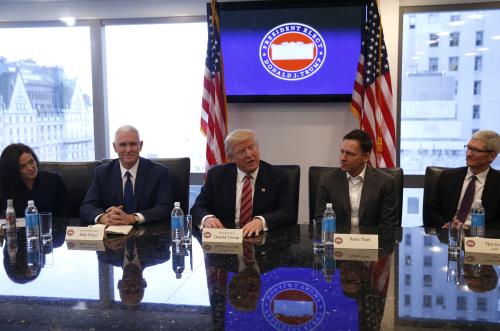
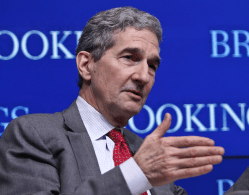


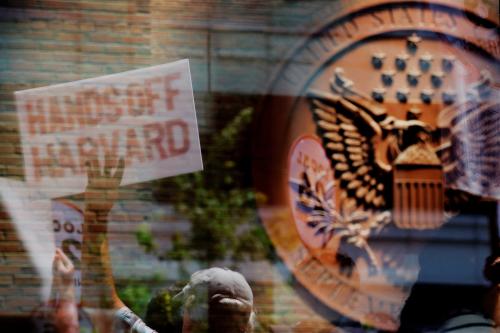
Commentary
Confirming Team Trump: Wilbur Ross for Department of Commerce
January 11, 2017